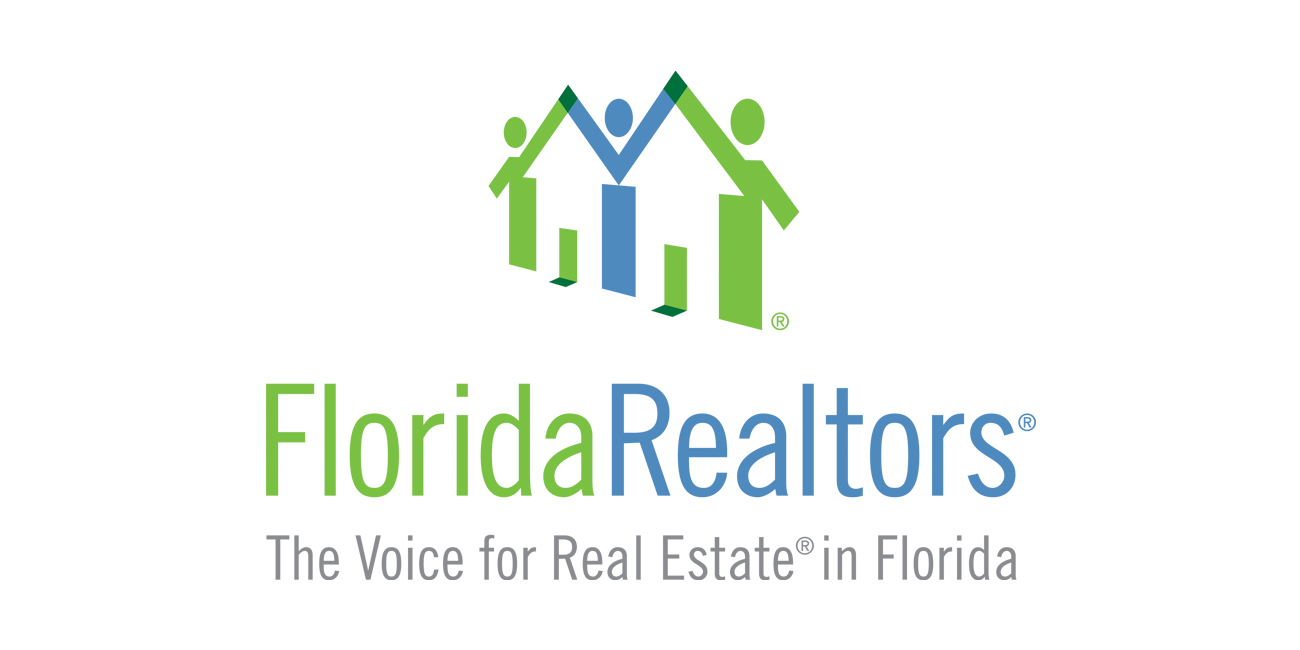Explore web search results related to this domain and discover relevant information.
A home equity loan is a second mortgage that allows you to borrow your equity as a lump sum, using your home as collateral. Learn more about home equity loans.
They usually are fixed-rate loans, so the interest rate remains the same throughout the term of the loan. The amount you qualify for may be more money than you need or can afford. Review your household’s budget before agreeing to any terms. This way, you can ensure you can afford your monthly payments. For example, say you can qualify for a $100,000 home equity loan, but the kitchen renovation you need to finance will cost $40,000.You can choose anywhere between a 10- to 30-year loan term, depending on your goals for the loan. A 10-year term, while offering a quicker payoff, will have larger payments. ... Before you decide to get a home equity loan, you should be aware of the pros and cons.The loan terms are longer than terms for other consumer loans. There are no restrictions on how you can use the funds. There are also some drawbacks of home equity loans to consider.You’ll have to pay closing costs, unlike with some other consumer loans. Apply online for expert recommendations with real interest rates and payments ... To get a home equity loan, you’ll need to qualify, which means your lender will calculate your equity and debt-to-income ratio, and pull your credit score.

Get the answers you need and make the most of your Home Equity Line of Credit. ... Unsure if you qualify for a traditional HELOC? We'd like to help you get cash for what you need today with our GoalBuilder HELOC†, so you can avoid more expensive borrowing options such as credit cards or personal loans...
Legal Disclosure: Home Equity Lines of Credit are offered and originated by Citizens Bank, N.A. (NMLS ID# 433960) All loans are subject to approval.Get your Home Equity Line of Credit with Citizens FastLine®. View your rate in minutes with no impact to your credit score.Explore what a home equity line of credit could do for you.Citizens FastLine is our digital application experience that allows you to get a home equity line of credit faster and with less paperwork.

Home equity loans and HELOCs can help you improve your financial position when used wisely this fall. Here's how.
Home prices are still high, and most homeowners have substantial home equity, about $313,000 on average, according to a March 2025 ICE Mortgage Monitor report. Understandably, many want to utilize it with a home equity loan or home equity line of credit (HELOC) for much-needed cash.Of course, there's a benefit-risk ratio to consider with any loan product. On the one hand, using a home equity loan or HELOC the right way could help you achieve a major financial goal or strengthen your overall situation. But using it the wrong way could also backfire with serious consequences.Credit card interest rates are around 22%. It makes sense to consolidate these high-interest cards with a home equity loan or line of credit, with rates currently hovering around 8%. This can be a wise option, "if the borrower is disciplined about not racking up more once the debt is paid off," says Shayowitz.Daniel Milks, founder of Fiduciary Organization and Woodmark Advisors, says speculative investing is one of the riskiest uses for home equity funds. "I've seen people pull equity to invest in the market or fund a new business idea, assuming they'll see a return higher than the loan rate.
You can use home equity loans or HELOCs to pay for home improvements. Find out if you have enough home equity to qualify and which type of renovation loan is best.
Home equity can be a helpful way to pay for home repairs, renovations, or improvements. Not only do home equity loans and lines of credit typically come with lower interest rates than other forms of borrowing, but they also come in fairly large loan amounts (usually up to 80% of your equity).Home equity sharing can benefit homeowners whose credit scores are too low to qualify for home equity loans or HELOCs. However, it is only available in certain markets where home equity investing companies operate.It may come with closing costs and fees. As with your original mortgage, you’ll typically need to pay various closing costs and fees when you use a home equity product. Make sure to shop around for HELOC and home equity loan lenders to find ones that charge fewer fees.If you’re not sure whether the pros outweigh the cons in your situation, talk to a professional. A mortgage broker, loan officer, or financial planner can help you make the right decision for your goals and budget.

No-appraisal home equity loans can be processed faster than those that require an in-person assessment.
We review the five best no-appraisal home equity lenders, including Connexus Credit Union, PenFed and Rate.We used publicly available data and interviews with lender representatives to verify the accuracy of the data. We then narrowed down a list of lenders offering no-appraisal loans and used factors such as interest rates, term options, maximum loan amounts, credit score requirements, and loan-to-value thresholds to score each lender on a scale of one to five.Why we chose it: Connexus Credit Union takes the cake for top no-appraisal home equity lender. Not only does it offer both home equity loans and HELOCs for up to 90% of your home’s market value (minus your current mortgage balance), but it also offers low interest rates.Why we chose it: Figure has our top-rated no-appraisal HELOC, and it’s no wonder: The all-digital online lender specializes in these products, and it offers some big perks for its borrowers. Interest rates are always fixed (a big difference compared to most HELOCs), there are four loan terms to choose from, and you can receive your cash in as few as five days.
Chase Home Lending is finally re-introducing its home equity line of credit (HELOC) product. Learn how Chase's new HELOC works and whether it's a good fit for you.
Chase Home Loans is offering a "refinancing rate sale" for rate-and-term and cash-out refinancing.
A home equity loan is a one-time installment loan that lets you use the equity in your home as collateral. It’s sometimes referred to as a home equity installment loan or HELOAN for short. Home equity loans offer several benefits, including a fixed interest rate that may be lower than other ...
What is a home equity loan? Home equity installment loans are a great way to consolidate debt or pay for major expenses with a fixed-rate payment. Learn more.A home equity loan is a one-time installment loan that lets you use the equity in your home as collateral. It’s sometimes referred to as a home equity installment loan or HELOAN for short. Home equity loans offer several benefits, including a fixed interest rate that may be lower than other types of loans, and a regular monthly payment.This gives you a predictable repayment schedule for the life of the loan, up to 30 years. To qualify for a home equity loan, you’ll need a FICO score of 660 or higher.Rates shown for loans in the amount of $50,000 – $99,999 up to 60% loan to value (LTV), and for clients with automatic payments from a U.S. Bank personal checking or savings account with a FICO score of 730 or higher.2 Rates may vary by region and are subject to change. ... U.S. Bank currently doesn’t offer home equity products in your location.


Home equity loans and home equity lines of credit (HELOCs) allow homeowners to tap into the value of their homes. A home equity loan is a fixed-rate, lump-sum loan that allows homeowners to borrow up to 85% of their home's value and pay that amount back in monthly installments. A home equity line
Discover the Latest HELOC & Home Equity Interest Rates with Forbes Advisor - Unlock Your Home's Financial Potential Today!Caroline Basile is Forbes Advisor’s student loans and mortgages deputy editor. With experience in both the mortgage industry and as a journalist, she was previously an editor with HousingWire, where she produced daily news and feature stories.Ashley is a lead editor of mortgages and loans at Forbes Advisor. She graduated from Utah Tech University with a bachelor’s in English with an emphasis in creative writing.She began her career covering student loan content at Student Loan Hero befor...

Chase is relaunching its home equity line of crdit to help homeowners tap into the value of their home.
See which personal loans you qualify forCompare multiple lenders in one place · Select independently determines what we cover and recommend. We earn a commission from affiliate partners on many offers and links. This commission may impact how and where certain products appear on this site (including, for example, the order in which they appear).Conventional loans, FHA loans, VA loans, DreaMaker℠ loans and Jumbo loans · 10 – 30 years · 620 · 3% if moving forward with a DreaMaker℠ loan · Terms apply. Yes — click here for details · "As home valuations reach historic highs, homeowners are looking for more options to tap into their home's equity," Erik Schmitt, digital channel executive with Chase Home Lending, said in a release.

Explore home equity loans and learn how to leverage your property’s equity. This guide covers how to calculate equity, what you can use it for and more.
Get expert help finding home equity loans to suit your needs.A home equity loan allows you to borrow money by tapping into the equity you’ve built in your home.You can access this equity in two main ways: by refinancing your existing home loan to increase its balance or by taking out a separate loan or line of credit.Lump-sum home equity loans work just like a standard home loan agreement, where you borrow an approved amount and make regular repayments – including interest – over the loan term.
Home improvements and local appreciation can speed it up. ... Borrowing against equity means taking on debt. “You must repay these loans, and your home now is collateral if you can’t,” Schmitt says.
Borrowing against home equity depletes all value in a home · “Most loans let you borrow up to 80% of value, ensuring you still retain a stake in your property,” Coleman says.Home equity loan: A fixed-rate “second mortgage” with lump-sum funds and set payback installments.Cash-out refinance: Replaces your mortgage with a larger loan, giving you the difference in cash. “It is important to recognize the risks involved,” Schmitt cautions. “If you fail to keep up with payments, you could risk foreclosure.” · Auerswald advises running the numbers. “Compare what you’ll spend in interest to what the investment is likely to earn, and make sure repayments fit your budget. Equity is a tool, not windfall cash, and the best results come from treating it as one component of a larger, well-thought-out financial plan.”Home equity is one of the biggest financial benefits of homeownership. Make it count by paying on time, paying extra, renovating and waiting for the value to grow.

Texas has unique requirements for taking equity out of your primary residence homestead. The term “home equity” loans refers to lending on primary residences only. However, we may be able to assist you with a different product such as a cash-out refinance using your vacation or investment ...
As a homeowner, you can use your home's equity as a borrowing tool and leverage the value you've built through years of mortgage payments. If you have property in Texas, a home equity loan or home equity line of credit (HELOC) can be an economical way to obtain a low-rate loan.RBFCU will do everything we can to close the loan as soon as possible. Is there a limit on how big my home equity loan can be?The maximum loan to value is 80 percent. Can I get a home equity loan on my vacation or investment property?Texas has unique requirements for taking equity out of your primary residence homestead. The term “home equity” loans refers to lending on primary residences only. However, we may be able to assist you with a different product such as a cash-out refinance using your vacation or investment home as security for the loan.

There are some benefits to the approach now but it won't be right for everyone. Here's what experts say to consider.
Aly J. Yale is a contributing writer for the Managing Your Money section for CBSNews.com, covering various personal finance topics, including investing, homebuying, loans and more. Read Full Bio ... Sr. Managing Editor, Managing Your Money · Matt Richardson is the senior managing editor for the Managing Your Money section for CBSNews.com. He writes and edits content about personal finance ranging from savings to investing to insurance. Read Full Bio ... Borrowing home equity to pay off student loans could make sense for some homeowners this fall.Student loan payments plague millions of Americans, and with interest constantly accruing, it can sometimes feel like there's no end in sight. For some consumers, it can even make handling everyday costs and expenses challenging. · If you own a home, though, you might have an option to ease that struggle. Thanks to rising home prices, homeowners have gained a lot of equity over the past few yeara.And that equity can be borrowed from with products like home equity lines of credit (HELOCs) and home equity loans. You can then use that money toward expenses, medical bills, or, yes, paying off debts like your student loans.Is it a strategy you should try for your student loans, too, especially in today's economic climate? We asked some experts about this approach — and the risks it could come with. · Start by seeing how much home equity you have to borrow here.

Great loan options to help you benefit from the equity you've earned with $0 closing costs!Footnote 1 Footnote 2 · Home equity is the difference between how much you owe on your mortgage and how much your home is worth.
Great loan options to help you benefit from the equity you've earned with $0 closing costs!Footnote 1 Footnote 2 · Home equity is the difference between how much you owe on your mortgage and how much your home is worth.The best part about our Fixed-Rate Equity Loan is stability. This is a great option if you’re in need of a specific amount of money for a one-time expense. You'll get a lump sum amount, pay zero closing costsFootnote 1 and enjoy a fixed rate for the life of the loan with set monthly payments. ... Our Home Equity Line of Credit offers flexibility, and you'll pay zero closing costs.Footnote 2 If you expect to have ongoing expenses, this option is for you.These fees can typically run between half a percent to 1% of the loan amount. So for a $100,000 loan, you'd pay from $500 to $1,000. Nobody wants that. And for HELOCs, we don't ding you with annoying annual or inactivity fees. Reason number two. You can borrow as much as 100% of your home's equity with a Navy Federal Home Equity Loan.Other lenders may require you to retain at least 15% to 20% of your equity, so that $100,000 loan you're looking to take out could drop to $85,000 or $80,000. Reason number three. You choose the term and the loan. With a Navy Federal Home Equity Loan, you have the flexibility of 5-, 10-, 15-, or 20-year terms.

Whether you’re looking to pay off high-rate debt, renovate your home, or simply manage your finances better, our new low rates make it easier.
Look no further than your own front door. With increases in home values, your home’s equity has likely grown. Home equity loans and lines of credit do not have to be used exclusively for finances related to your home. Our fixed-rate home equity loans are now even more affordable.Convert your home equity into cash and consolidate high-interest debt into a single, predictable monthly payment. ... 10-year term - $100,000 loan amount - Rates are 0.25% higher for properties located in the state of NY.Do you want to help your kids get a head start on paying for tuition and other college-related expenses? Or maybe you're ready to take on graduate school? With a Home Equity Loan or HELOC, you can use the equity in your home to fund expenses at an often lower interest rate than student loans.Expecting a baby? Planning a dream wedding? Need to consolidate debt? The uses for your HELOC are limitless. And, since the loan is secured by the equity in your home, interest rates are often lower than other options, especially if you lock in this limited time offer.


Most Expensive Home Equity Loans can drain your savings faster than you think, discover where loan costs and how to protect your budget.
Home equity loans have surged in popularity amid rising home values, but not all loans are created equal. In fact, some borrowers are unknowingly overpaying by tens of thousands of dollars due to hidden fees, regional rate spikes, and poor financial timing. This article reveals where equity loans are most expensive, why, and how to avoid becoming another case study in high-cost borrowing.Georgia, North Dakota, and Wisconsin are among the most expensive states for home equity loans in 2025, primarily due to lender risk margins and market competition.Origination and closing fees can add up to $5,000–$7,500 on a $100K loan.Variable-rate loans remain risky, with ballooning costs as benchmarks rise in 2025.

Homeowners may find slightly lower rates with one option, but more stability with the other. Here's why.
And, that amount of home equity could come in handy for homeowners looking for low-cost financing, especially as interest rates across other borrowing products remain high. Take, for example, today's average credit card interest rates, which are sitting above 21%, while average personal loan rates are hovering slightly above 11%. In comparison, home equity borrowing options provide notably cheaper rates.But while both HELOCs and home equity loans allow homeowners to borrow at a low rate, the affordability depends on a combination of rates, repayment terms, fees and your credit profile. Given these factors, is a HELOC or a home equity loan more affordable this September?HELOC and home equity loan interest rates tend to be lower than other borrowing options, but they're still impacted by the Federal Reserve's rate decisions. So, while the Federal Reserve has kept the federal funds rate the same throughout the year, home equity rates have also roughly stayed in the same range, but there might be a reprieve in sight.The odds of a Federal Reserve rate cut in September are high currently, according to the CME Group's FedWatch tool. If the Fed does finally decide to cut rates, rates on borrowing products, including HELOCs and home equity loans, could fall in tandem.
Leverage your home's equity with low-rate home equity loans and lines of credit from Fifth Third Bank. See your HELOC and home loan options today.
Use the equity in your home to help you with your financing needs. ... We’re gathering those rates. ... Sorry, online rates aren’t available right now. It looks like rates aren't available at this time for the state you entered. Please give us a call at 866-351-5353 for more information about available loans and services.Refinance your mortgage or use equity for cash. Fixed rate—meaning your rate never changes. Same payment amount for the life of the loan. Principal and interest payments over the length of your loan. ... A Home Equity Line of Credit (HELOC) can be a handy way to make the most of your home’s equity.With a home equity loan, you get the full amount of what you borrow up front, and then pay it back in fixed, monthly payments.Principal and interest payments over the length of your loan. No closing costs. This is an easy, low-cost way to refinance your mortgage or use your equity for cash.
The average home equity loan rate inched up, but stayed at 2025 lows. The average HELOC fell back, as lenders resumed low intro-rate offers.
The rise and fall largely reflects a major lender in the field ending, and then resuming, its low introductory rates. Meanwhile, the average rate on the benchmark 5-year $30,000 home equity loan ticked one basis point higher to 8.23 percent, still holding close to its lowest levels this year.Because HELOCs and home equity loans use your home as collateral, their rates tend to be much less expensive — more akin to current mortgage rates — than the interest charged on credit cards or personal loans, which aren’t secured.While average rates are useful to know, the individual offer you receive on a particular HELOC or new home equity loan reflects additional factors like your creditworthiness and financials. Then there’s the value of your home and the size of your ownership stake.Lenders generally limit all your home loans (including your mortgage) to a maximum 80 to 85 percent of your home’s worth. Keep in mind: Even if you’re able to secure a favorable rate from a lender, home equity products are still relatively high-cost debt.


The average home equity loan rate inched up, but stayed at 2025 lows. The average HELOC fell back, as lenders resumed low intro-rate offers.
The rise and fall largely reflects a major lender in the field ending, and then resuming, its low introductory rates. Meanwhile, the average rate on the benchmark 5-year $30,000 home equity loan ticked one basis point higher to 8.23 percent, still holding close to its lowest levels this year.Because HELOCs and home equity loans use your home as collateral, their rates tend to be much less expensive — more akin to current mortgage rates — than the interest charged on credit cards or personal loans, which aren’t secured.While average rates are useful to know, the individual offer you receive on a particular HELOC or new home equity loan reflects additional factors like your creditworthiness and financials. Then there’s the value of your home and the size of your ownership stake.To conduct the National Average survey, Bankrate obtains rate information from the 10 largest banks and thrifts in 10 large U.S. markets. In the Bankrate.com national survey, our Market Analysis team gathers rates and/or yields on banking deposits, loans and mortgages.





